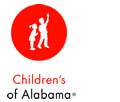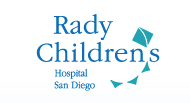Temsirolimus, Dexamethasone, Mitoxantrone Hydrochloride, Vincristine Sulfate, and Pegaspargase in Treating Young Patients With Relapsed Acute Lymphoblastic Leukemia or Non-Hodgkin Lymphoma
| Status: | Completed |
|---|---|
| Conditions: | Blood Cancer, Lymphoma |
| Therapuetic Areas: | Oncology |
| Healthy: | No |
| Age Range: | 1 - 21 |
| Updated: | 4/21/2016 |
| Start Date: | September 2011 |
A Phase 1 Study of Temsirolimus in Combination With Intensive Re-induction Therapy for Children With Relapsed Acute Lymphoblastic Leukemia and Non-Hodgkin Lymphoma
This phase I trial studies the side effects and the best dose of temsirolimus when given
together with dexamethasone, mitoxantrone hydrochloride, vincristine sulfate, and
pegaspargase in treating young patients with relapsed acute lymphoblastic leukemia or
non-Hodgkin lymphoma. Temsirolimus may stop the growth of cancer cells by blocking some of
the enzymes needed for cell growth. Drugs used in chemotherapy, such as dexamethasone,
mitoxantrone hydrochloride, vincristine sulfate, and pegaspargase work in different ways to
stop the growth of cancer cells, either by killing the cells or by stopping them from
dividing. Giving temsirolimus with combination chemotherapy may be and effective treatment
for acute lymphoblastic leukemia or non-Hodgkin lymphoma.
together with dexamethasone, mitoxantrone hydrochloride, vincristine sulfate, and
pegaspargase in treating young patients with relapsed acute lymphoblastic leukemia or
non-Hodgkin lymphoma. Temsirolimus may stop the growth of cancer cells by blocking some of
the enzymes needed for cell growth. Drugs used in chemotherapy, such as dexamethasone,
mitoxantrone hydrochloride, vincristine sulfate, and pegaspargase work in different ways to
stop the growth of cancer cells, either by killing the cells or by stopping them from
dividing. Giving temsirolimus with combination chemotherapy may be and effective treatment
for acute lymphoblastic leukemia or non-Hodgkin lymphoma.
PRIMARY OBJECTIVES:
I. To estimate the maximum-tolerated dose (MTD) and/or recommended phase 2 dose of
temsirolimus administered weekly for 2 doses in combination with intensive re-induction
chemotherapy in children with relapsed acute lymphoblastic leukemia (ALL) or non-Hodgkin
lymphoma (NHL).
II. To define and describe the toxicities of temsirolimus in combination with intensive
re-induction chemotherapy in children with relapsed ALL or NHL administered on this
schedule.
SECONDARY OBJECTIVES:
I. To compare minimal-residual disease (MRD) levels present at end of induction to
historical control in patients with relapsed ALL or NHL with bone marrow involvement of
disease.
II. To determine the complete remission (CR) rate in patients with ALL or NHL who receive
this regimen.
III. To evaluate responsiveness of patient ALL cells to mammalian target of rapamycin (mTOR)
inhibition using in vitro and in vivo pharmacodynamic assessment of the response of ALL
blasts to temsirolimus.
OUTLINE: This is a dose-escalation study of temsirolimus.
Patients receive dexamethasone orally (PO) or intravenously (IV) on days 1-5 and 15-19;
mitoxantrone hydrochloride IV over 30 minutes on days 1-2; temsirolimus IV over 30 minutes
on days 1 and 8; vincristine sulfate IV on days 1, 8, 15, and 22; and pegaspargase IV over 1
hour on days 3 and 17. Some patients may also receive methotrexate intrathecally (IT) up to
72 hours prior to or on day 1 and on day 8.
After completion of study therapy, patients are followed up for 30 days.
I. To estimate the maximum-tolerated dose (MTD) and/or recommended phase 2 dose of
temsirolimus administered weekly for 2 doses in combination with intensive re-induction
chemotherapy in children with relapsed acute lymphoblastic leukemia (ALL) or non-Hodgkin
lymphoma (NHL).
II. To define and describe the toxicities of temsirolimus in combination with intensive
re-induction chemotherapy in children with relapsed ALL or NHL administered on this
schedule.
SECONDARY OBJECTIVES:
I. To compare minimal-residual disease (MRD) levels present at end of induction to
historical control in patients with relapsed ALL or NHL with bone marrow involvement of
disease.
II. To determine the complete remission (CR) rate in patients with ALL or NHL who receive
this regimen.
III. To evaluate responsiveness of patient ALL cells to mammalian target of rapamycin (mTOR)
inhibition using in vitro and in vivo pharmacodynamic assessment of the response of ALL
blasts to temsirolimus.
OUTLINE: This is a dose-escalation study of temsirolimus.
Patients receive dexamethasone orally (PO) or intravenously (IV) on days 1-5 and 15-19;
mitoxantrone hydrochloride IV over 30 minutes on days 1-2; temsirolimus IV over 30 minutes
on days 1 and 8; vincristine sulfate IV on days 1, 8, 15, and 22; and pegaspargase IV over 1
hour on days 3 and 17. Some patients may also receive methotrexate intrathecally (IT) up to
72 hours prior to or on day 1 and on day 8.
After completion of study therapy, patients are followed up for 30 days.
Inclusion Criteria:
- Diagnosis:
- Patients must have second (2nd) or greater relapse of pre-B ALL, T-cell ALL,
lymphoblastic lymphoma, or peripheral T-cell lymphoma; patients may not have
refractory disease
- Patients with leukemia must have had histologic verification of the malignancy
at the most recent relapse, including immunophenotyping to confirm diagnosis
- Disease Status:
- Leukemia: patients with leukemia must have an M3 marrow with or without
extramedullary site of relapse OR an M2 bone marrow with an extramedullary site
of relapse; patients with central nervous system (CNS) 3 status are not eligible
for enrollment
- Lymphoma: patients with non-Hodgkin lymphoma must have either measurable or
evaluable disease
- Patient's current disease state must be one for which there is no known curative
therapy or therapy proven to prolong survival with an acceptable quality of life
- Karnofsky >= 50% for patients > 16 years of age and Lansky >= 50 for patients =< 16
years of age; patients who are unable to walk because of paralysis, but who are up in
a wheelchair, will be considered ambulatory for the purpose of assessing the
performance score
- Prior Therapy:
- Patients must have fully recovered from the acute toxic effects of all prior
anti-cancer chemotherapy, defined as resolution of all such toxicities to =<
grade 2 or per the inclusion/exclusion criteria
- Myelosuppressive chemotherapy:
- Patients with leukemia or lymphoma who relapse while receiving standard
maintenance chemotherapy with steroid, vincristine pulses and oral
outpatient chemotherapy will not be required to have a waiting period
before enrollment onto this study
- Patients who relapse while they are not receiving standard maintenance
therapy, must have fully recovered from all acute toxic effects of prior
therapy; at least 14 days must have elapsed after the completion of
cytotoxic therapy, with the exception of hydroxyurea
- Note: cytoreduction with hydroxyurea in patients can be initiated and
continued for up to 24 hours prior to the start of protocol therapy
- Hematopoietic growth factors: at least 14 days after the last dose of a
long-acting growth factor (e.g. Neulasta) or 7 days for short-acting growth
factor; for agents that have known adverse events occurring beyond 7 days after
administration, this period must be extended beyond the time during which
adverse events are known to occur; the duration of this interval must be
discussed with the study chair
- Biologic (anti-neoplastic agent): at least 7 days after the last dose of a
biologic agent; for agents that have known adverse events occurring beyond 7
days after administration, this period must be extended beyond the time during
which adverse events are known to occur; the duration of this interval must be
discussed with the study chair
- Immunotherapy: at least 42 days after the completion of any type of
immunotherapy, e.g. tumor vaccines
- Monoclonal antibodies: at least 3 half-lives of the antibody after the last dose
of a monoclonal antibody with the exception of blinatumomab; patients must have
been off blinatumomab infusion for at least 7 days and all drug-related toxicity
must have resolved to grade 1 or lower as outline in the inclusion and exclusion
criteria
- Radiation therapy (XRT): at least 14 days after local palliative XRT (small
port); at least 84 days must have elapsed if prior total body irradiation (TBI),
craniospinal XRT or if >= 50% radiation of pelvis; at least 42 days must have
elapsed if other substantial bone marrow (BM) radiation
- Stem cell infusion: no evidence of active graft versus (vs.) host disease and at
least 84 days must have elapsed after transplant or stem cell infusion
- Study specific limitations on prior therapy: patient may not have received prior
therapy with an mTOR inhibitor
- Note: intrathecal (IT) methotrexate (MTX) that is given up to 72 hours prior to
initiation of systemic chemotherapy per ADVL1114 counts as protocol therapy and
not prior anti-cancer therapy; IT MTX given > 72 hours prior does not count as
protocol therapy
- Platelet count >= 20,000/mm^3 (may receive platelet transfusions) to initiate therapy
- Patients must not be known to be refractory to red cell or platelet transfusion
- Creatinine clearance or radioisotope glomerular filtration rate (GFR) >=
70ml/min/1.73 m^2 or a serum creatinine based on age/gender as follows:
- 0.6 mg/dL (1 to < 2 years of age)
- 0.8 mg/dL (2 to < 6 years of age)
- 1.0 mg/dL (6 to < 10 years of age)
- 1.2 mg/dL (10 to < 13 years of age)
- 1.5 mg/dL (male) or 1.4 mg/dL (female) (13 to < 16 years of age)
- 1.7 mg/dL (male) or 1.4 mg/dL (female) (>= 16 years of age)
- Bilirubin (sum of conjugated + unconjugated) =< 1.5 x upper limit of normal (ULN) for
age
- Serum glutamate pyruvate transaminase (SGPT) (alanine aminotransferase [ALT]) =< 225
U/L; for the purpose of this study, the ULN for SGPT is 45 U/L
- Gamma-glutamyl transpeptidase (GGT) =< ULN for age
- Serum albumin >= 2 g/dL
- Shortening fraction of >= 27% by echocardiogram, or ejection fraction of >= 50% by
gated radionuclide study
- Pulse oximetry > 94% on room air
- Baseline chest x-ray; patients with active infectious disease or pneumonitis are not
eligible
- Serum triglyceride level =< 300 mg/dL and serum cholesterol level =< 300 mg/dL
- Random or fasting blood glucose within the upper normal limits for age; if the
initial blood glucose is a random sample that is above the upper normal limits, then
a follow-up fasting blood glucose can be obtained and must be within the upper normal
limits for age
- All patients and/or their parents or legally authorized representatives must sign a
written informed consent; assent, when appropriate, will be obtained according to
institutional guidelines
Exclusion Criteria:
- Pregnant or breast-feeding women will not be entered on this study; pregnancy tests
must be obtained in girls who are post-menarchal; males or females of reproductive
potential may not participate unless they have agreed to use an effective
contraceptive method
- Patients receiving stable or decreasing doses of corticosteroids for =< 7 days prior
to enrollment, or who are receiving increasing doses of corticosteroids, are not
eligible for enrollment; the exception to this is pulsed steroids used for
maintenance chemotherapy
- Patients who are currently receiving another investigational drug are not eligible
- Patients who are currently receiving other anti-cancer agents are not eligible
(except patients receiving hydroxyurea, which may be continued until 24 hours prior
to start of protocol therapy)
- Patients who are receiving cyclosporine, tacrolimus or other agents to prevent
graft-versus-host disease post bone marrow transplant are not eligible for this trial
- Patients who cannot receive asparaginase are not permitted on trial; substitution
with Asparaginase Erwinia Chrysanthemi is acceptable
- Cumulative prior anthracycline exposure must not exceed 400 mg/m^2 (each 10 mg/m^2 of
idarubicin or mitoxantrone should be calculated as the isotoxic equivalent of 30
mg/m^2 of daunorubicin or doxorubicin)
- Patients who are currently receiving therapeutic anticoagulants (including aspirin,
low molecular weight heparin, and others) are not eligible
- Patients who are currently receiving angiotensin-converting enzyme (ACE) inhibitors
are not eligible due to the development of angioneurotic edema-type reactions in some
subjects who received concurrent treatment with temsirolimus + ACE inhibitors
- Enzyme-Inducing anti-convulsants: patients who are currently receiving
enzyme-inducing anti-convulsants (i.e., phenytoin, phenobarbital, or carbamazepine)
are not eligible
- Patients with CNS 3 status at enrollment are not eligible
- Patients must have no pre-existing grade 1 or higher ulcerations, fistulas, mucosal
lesions, or skin barrier breakdown
- Patients who have an uncontrolled infection are not eligible
- Patients with known optic nerve and/or retinal involvement (because it may not be
possible to safely delay irradiation) are not eligible; patients presenting with
visual disturbances by history or physical exam should have an ophthalmological exam
and magnetic resonance imaging (MRI) within 14 days prior to enrollment to determine
whether there is optic nerve or retinal involvement
- Patients with known Down syndrome, Fanconi anemia, Kostmann syndrome, Shwachman
syndrome or any other known bone marrow failure syndrome are not eligible
- Patients who have received a prior solid organ transplantation are not eligible
- Patients who in the opinion of the investigator may not be able to comply with the
safety monitoring requirements of the study are not eligible
We found this trial at
31
sites
Baylor College of Medicine Baylor College of Medicine in Houston, the only private medical school...
Click here to add this to my saved trials
Children's Hospital of Alabama Children
Click here to add this to my saved trials
University of North Carolina at Chapel Hill Carolina’s vibrant people and programs attest to the...
Click here to add this to my saved trials
3333 Burnet Avenue # Mlc3008
Cincinnati, Ohio 45229
Cincinnati, Ohio 45229
1-513-636-4200

Cincinnati Children's Hospital Medical Center Patients and families from across the region and around the...
Click here to add this to my saved trials
Rainbow Babies and Children's Hospital UH Rainbow Babies & Children’s Hospital is a 244-bed, full-service...
Click here to add this to my saved trials
Nationwide Children's Hospital At Nationwide Children’s, we are creating the future of pediatric health care....
Click here to add this to my saved trials
University of Mississippi Medical Center The University of Mississippi Medical Center, located in Jackson, is...
Click here to add this to my saved trials
Children's Mercy Hospital Children's Mercy Hospitals and Clinics continues redefining pediatric medicine throughout the Midwest...
Click here to add this to my saved trials
Children's Hospital of Orange County For more than 45 years, CHOC Children’s has been steadfastly...
Click here to add this to my saved trials
Children's Hospital of Philadelphia Since its start in 1855 as the nation's first hospital devoted...
Click here to add this to my saved trials
4401 Penn Avenue
Pittsburgh, Pennsylvania 15224
Pittsburgh, Pennsylvania 15224
412-692-5325

Children's Hospital of Pittsburgh of UPMC UPMC is one of the leading nonprofit health systems...
Click here to add this to my saved trials
3181 Southwest Sam Jackson Park Road
Portland, Oregon 97239
Portland, Oregon 97239
503 494-8311

Oregon Health and Science University In 1887, the inaugural class of the University of Oregon...
Click here to add this to my saved trials
Rady Children's Hospital - San Diego Rady Children's Hospital-San Diego is the region’s pediatric medical...
Click here to add this to my saved trials
C S Mott Children's Hospital Behind the doors of C.S. Mott Children's Hospital there exist...
Click here to add this to my saved trials
Click here to add this to my saved trials
Click here to add this to my saved trials
Click here to add this to my saved trials
Riley Hospital for Children Riley Hospital for Children at IU Health is a place of...
Click here to add this to my saved trials
Midwest Children's Cancer Center The Medical College of Wisconsin Cancer Center is dedicated to providing...
Click here to add this to my saved trials
2450 Riverside Ave
Minneapolis, Minnesota 55454
Minneapolis, Minnesota 55454
(612) 273-3000
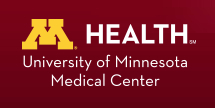
University of Minnesota Medical Center, Fairview Improving patients' lives drives the innovation that makes University...
Click here to add this to my saved trials
2525 Chicago Ave
Minneapolis, Minnesota 55404
Minneapolis, Minnesota 55404
(612) 813-6000
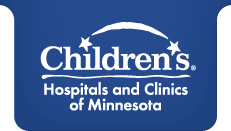
Children's Hospitals and Clinics of Minnesota - Minneapolis Children's Hospitals and Clinics of Minnesota is...
Click here to add this to my saved trials
Click here to add this to my saved trials
Columbia University Medical Center Situated on a 20-acre campus in Northern Manhattan and accounting for...
Click here to add this to my saved trials
940 NE 13th St
Oklahoma City, Oklahoma 73190
Oklahoma City, Oklahoma 73190
(405) 271-6458

University of Oklahoma Health Sciences Center The OU Health Sciences Center is composed of seven...
Click here to add this to my saved trials
725 Welch Rd
Palo Alto, California 94304
Palo Alto, California 94304
(650) 497-8000
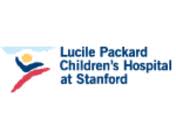
Lucile Packard Children's Hospital Stanford University Stanford Children's Health is the only network in the...
Click here to add this to my saved trials
Phoenix Children's Hospital Phoenix Children's Hospital has provided hope, healing, and the best healthcare for...
Click here to add this to my saved trials
660 S Euclid Ave
Saint Louis, Missouri 63110
Saint Louis, Missouri 63110
(314) 362-5000

Washington University School of Medicine Washington University Physicians is the clinical practice of the School...
Click here to add this to my saved trials
Click here to add this to my saved trials
Click here to add this to my saved trials
Click here to add this to my saved trials
111 Michigan Ave NW
Washington, District of Columbia
Washington, District of Columbia
(202) 476-5000

Childrens National Medical Center As the nation’s children’s hospital, the mission of Children’s National Medical...
Click here to add this to my saved trials

